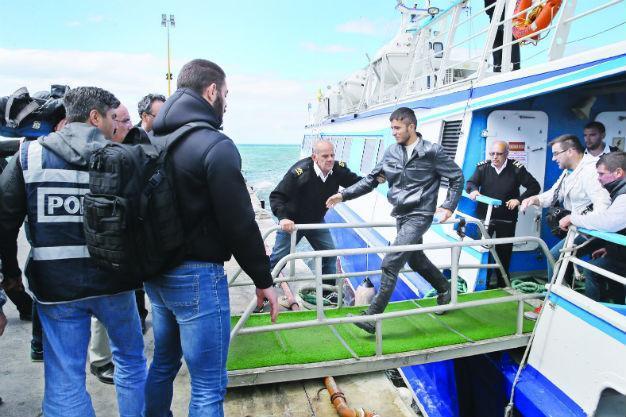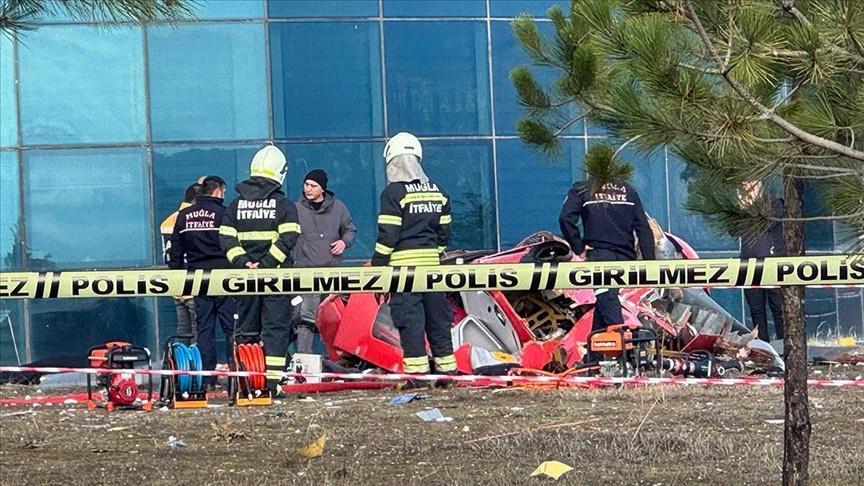Franco-German call for easier suspension of visa-free travel stirs controversy
Emine Kart - ANKARA

AA photo
A joint attempt by France and Germany to build a so-called “emergency brake” for future visa-free travel agreements with non-EU countries such as Turkey has led to debate as the attempt has been revealed only days before the EU’s executive arm is to decide on May 4 whether to recommend that member states approve the visa waiver scheme by the end of June.According to the Schengen Agreement, “if there is a serious threat to public policy or internal security, a Schengen country may exceptionally temporarily reintroduce border control at its internal borders for, in principle, a limited period of no more than thirty days. If such controls are reintroduced, the other Schengen countries, the European Parliament and the Commission should be informed, as should the public.”
Yet in a move widely considered as a maneuver to make visa liberalization for Turks, Ukrainians and Georgians more acceptable to their populations, Berlin and Paris wrote to EU partners earlier this week calling for a tougher safeguard mechanism in case of a spike of asylum requests, overstays or readmission refusals.
“This provision is only a proposal for now. It will have to be discussed among member states. It is a safeguard for all third countries, not only for us [Turkey]. That is to say, the talk is about a mechanism that includes taking rapid measures on this issue, in case of huge numbers of people travelling to Europe and staying there or asking for political asylum there after the visa liberalization is provided,” a senior Turkish diplomat told Hürriyet Daily News on April 29.
“Apparently, since Ukraine came into the picture along with us, and with things becoming serious because we are fulfilling the criteria, they are taking such a measure,” the diplomat, speaking under customary condition of anonymity, said, referring to the 72 criteria Turkey must meet if its citizens are to be allowed to travel to the EU without obtaining a visa first.
“It is envisaged rather to relieve their own public. Of course, it would have been better if they [France and Germany] had shared this with us earlier. We are still in the phase of a mutual assessment process,” the diplomat added.
Under their plan, which would have to be formally put forward by the Commission, any member state would be allowed to suspend visa-free travel from any country for six months unless EU states voted by a qualified majority to overrule it.
“The process of visa liberalization is being dealt with by the EU Commission. As you surely know, it has not come to a concrete result yet. In general, I can confirm that accords between the EU and third states on visa matters very often contain clauses that make possible suspension in part or in total of such agreements,” Tobias Plate, the spokesperson for the German Interior Ministry, the competent German authority in this case, told Hürriyet Daily News.
The Commission is due to report on May 4 whether Turkey has met the 72 technical and legal conditions to qualify for visa-free travel. If so, member states and the European Parliament would have to approve the plan.
Berlin and Paris want the safeguards, which their joint letter seen by Reuters called a “snap-back mechanism,” to be adopted at the same time.
Commission has ‘no intention to change regulation’
But a Commission spokesperson told Reuters that the EU visa regulation already contained a general suspension clause, which can be triggered for any country whose nationals are eligible for visa-free travel.
“The Commission currently has no intention to propose a revision of the existing suspension mechanism,” the spokesperson said.
Speaking with Hürriyet Daily News, a Eurocrat made clear that the Franco-German move was not an obstacle for the Commission to release its report on May 4.
“And it is not a development which would have an impact on the Commission’s final evaluation either. Implementation of the Schengen visa liberalization is at the disposal of the member states anyway,” the Eurocrat said.
The Franco-German letter, which diplomats told Reuters drew broad support at a meeting of EU ambassadors on April 28, said the existing procedure took too long.
“The whole procedure should be faster than the current one, which takes at least 9 months from the beginning of a substantial increase [of arrivals],” it said.
















